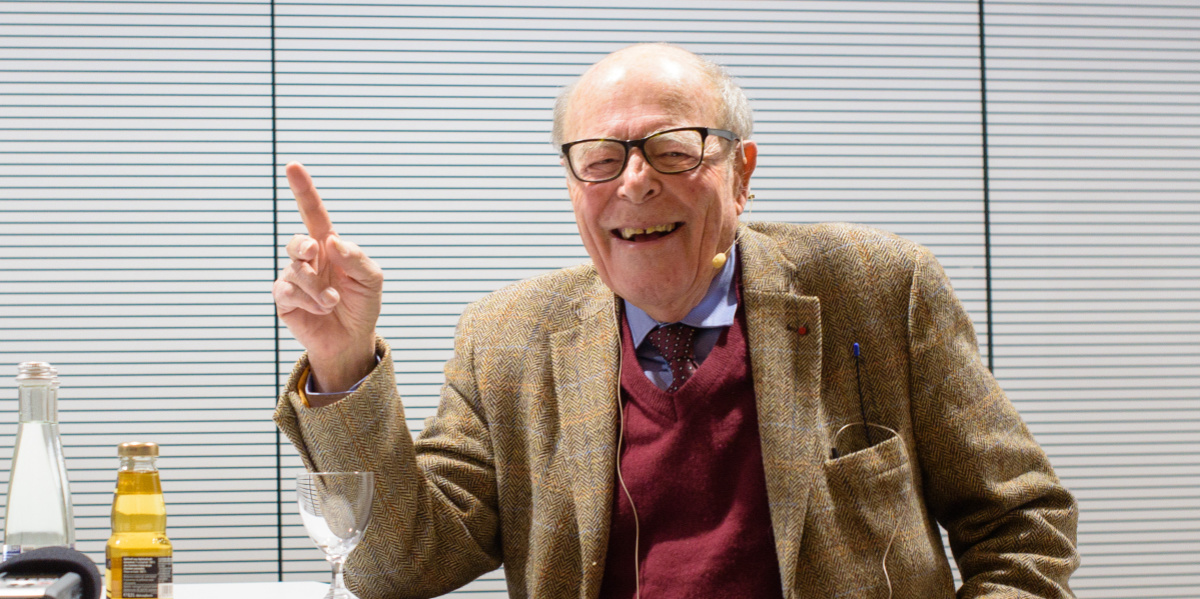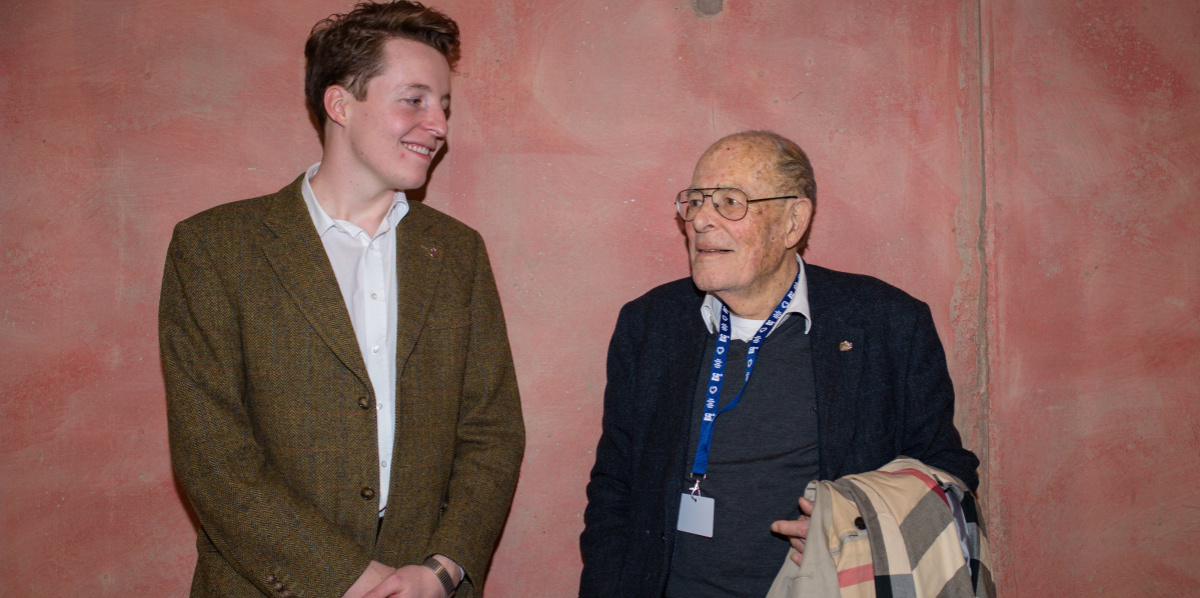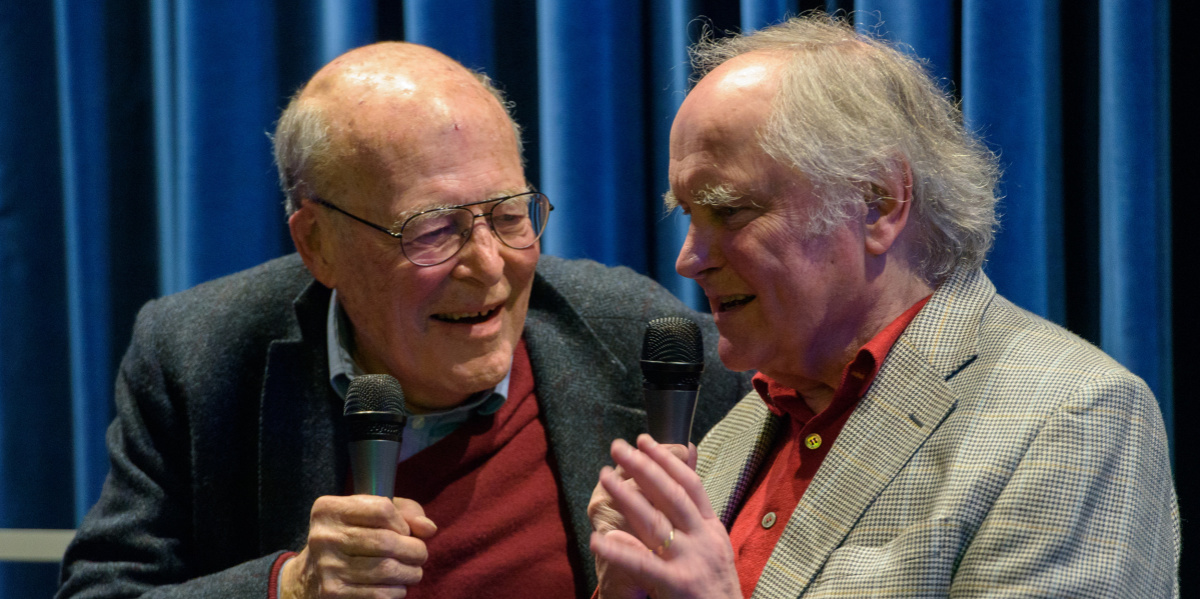MAX OPHÜLS
Oliver Dietze / ffmop
Oliver Dietze / ffmop
Oliver Dietze / ffmop
The young Max Oppenheimer grew up in a liberal upper middle-class Jewish parental home and experienced his first film screening at a fair in 1906. Against the plans of his father, who planned a commercial career for his son, Max Oppenheimer became an actor and director. To protect his family name he took the pseudonym Max Ophüls.
His first engagement as a theater director led him to the Burgtheater in Vienna in 1925, but he left it after only four productions because of anti-Semitic defamations. In Vienna Max Ophüls met the actress Hilde Wall whom he got married in 1926. One year later their son Marcel Ophüls was born.
After stations in Frankfurt and Breslau Ophüls went to Berlin in 1931 as a play director at the Meinhard-Bernauer Bühnen. In the same year he made his first short feature film DANN SCHON LIEBER LEBERTRAN (based on a literary model by Erich Kästner), commissioned by the UFA. He made his first feature film DIE VERLIEBTE FIRMA in 1932 for the Deutsche Lichtspiel-Syndikat. Further directorial works followed. With the Schnitzler adaptation LIEBELEI Max Ophüls celebrated his breakthrough in the film world.
Shortly after the Reichstag fire in 1933 Ophüls emigrated to Paris where his family soon followed him. In the next time he shot movies in France, Italy and Holland and became a French citizen in 1938. After the outbreak of World War II, Max Ophüls worked as an author on an anti-Nazi radio broadcast in 1940. After he had shot his last film (DE MAYERLING Á SARAJEWO) in the so-called Free France, he fled with his family to the south of France to emigrate to the USA. In 1941 he got the long-awaited visa and arrived by ship via Lisbon to New York. At the end of the year he reached Hollywood in the hope to continue his successful European directing career there. But the initial difficulties were enormous. Only in 1947 Max Ophüls completed his first directing work in the USA with THE EXILE. It followed other movies in Hollywood before he returned to France at the end of 1949.
Ophüls shot the Schnitzler film version LA RONDE (DER REIGEN) in Paris in 1950 which was awarded with a screenplay prize in Venice and brought him a world success. In 1955 he began his last great cinematic masterpiece LOLA MONTEZ. In 1957 he directed DER TOLLE TAG ODER FIGAROS HOCHZEIT at the Deutsches Schauspielhaus in Hamburg at the invitation of Gustaf Gründgens. On the day of the premiere he was hospitalized and died on March 26, 1957. Max Ophüls was buried at the Père Lachaise cemetery in Paris.
MARCEL OPHÜLS
Chronicler, enlightener, provocateur: Marcel Ophüls has written cinematographic and political history with his films. He is one of the most important and influential documentary filmmakers of our time. In 2016 he was guest of honour at the Filmfestival Max Ophüls Preis.
Marcel Ophüls' films impress with their physical impact alone. They are often expeditions of several hours, complexly constructed, through history whose tentacles reach up to the present. They would "not document history, but make it present," wrote Katja Nicodemus in "Die Zeit" in 2015. Ophüls' films are intrepid and inflammatory interventions aimed at all those who do not accept their responsibility for past misdemeanours and crimes and who have settled comfortably in the present.
Marcel Ophüls' interview technique is as famous as it is infamous. Jovially and charmingly he involves his interview partners in almost casual chats, only to confront them with hard facts the next moment and to keep on pestering them with questions until they drop their masks and the truth emerges behind the wall of repression and concealment. He does not spare himself in the process. His interview in a dressing gown with the ex-bodyguard of Klaus Barbie, the former Gestapo commander of Lyon, in HOTEL TERMINUS - LEBEN UND ZEIT des KLAUS BARBIE (1988) is legendary.
This film is Ophüls' opus magnum. It has received many awards, including an Oscar for Best Documentary in 1989. HOTEL TERMINUS is his most monumental confrontation with National Socialism, which was a constant source of inspiration for him and is a striking thematic constant in his work.
His film DAS HAUS NEBENAN - CHRONIK EINER FRANZÖSISCHE STADT IM KRIEGE (1969) caused a scandal that spread to the highest political circles in France. In it, Ophüls used the city of Clermont-Ferrand as an example to document cases of collaboration and a deeply rooted anti-Semitism, thus torpedoing the self-image of a nation that surrounded itself with the myth of heroic resistance against the occupiers. Charles de Gaulle himself prevented the film from being shown on television.
Marcel Ophüls was by no means born with documentary material. Born in Frankfurt/Main in 1927 and fled with his famous father Max, first to France and then to Hollywood, he first made feature films after studying at the University of California and the Sorbonne in Paris. With the support of François Truffaut he directed the crime drama HOT PAVEL with Jeanne Moreau and Jean-Paul Belmondo in 1963 and the Eddie Constantine comedy AB HEUTE WIEDER NIEDERSCHLÄGE in 1965. He had a close friendship with Truffaut and Jean-Luc Godard. From the middle of the 1960's he turned to the documentary film and made a world career in this genre.
"Actually, I regret that I am not able to make love films like my father", Marcel Ophüls admitted in 2015 on the occasion of the publication of his memoirs "Meines Vaters Sohn" 2015 in an interview with the "Zeit". It is to this "incapacity" that documentary film history owes some of its most important works.




